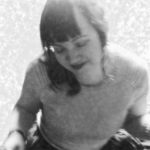What is Femininity? Western and Japanese Women Weigh In
The Results Were Eye Opening
How is femininity defined when you’re influenced by a foreign culture? How is it defined for Japanese women in particular? We reached out to several women living in Japan to hear their views.
Being a foreign woman in Japan comes with its trials and triumphs, but one thing that really can affect how you feel as a woman is your concept of what being “feminine” means. Of course, social ideas of femininity and its qualities vary from person to person and culture to culture. So, women living in a foreign culture can feel pressure, whether that’s consciously or subconsciously, to conform to a different definition of what it means to be feminine. That can be confusing and uncomfortable for some, while others seem to embrace it.
As a follow-up to our latest article on dating in Japan, we sought to understand what femininity meant to foreign women, and how that shaped their experiences in Japan. We also reached out to a few Japanese women to broaden our perspective on what femininity means in Japan.
The Western perspective
“Femininity is a social construct after all. But when I think of feminine, there are definitely some words that come to mind. Words like delicate, soft, and pretty are a few of them. But I also think of words like meticulous and hardworking, as many of the crafts traditionally associated with femininity (sewing, cooking, etc) take a lot of time and effort.” (Katie, 24, African American, USA)
To me, I feel femininity is not a category but a spectrum.
“I’m not exactly sure how I’d define femininity. The first thing that jumps to mind is female/woman and I probably associate it with the more ‘traditional’ ideas such makeup, dresses, delicate, well-mannered, etc. Despite believing that being ‘feminine’ does not necessarily mean you have to be a “lady” in the traditional sense, those are the first images that jump to mind when I hear it. I think it can be both a positive and a negative thing.” (Emily, 33, Caucasian, UK)
“To me, I feel femininity is not a category but a spectrum. Femininity is not something you can definitively claim you are or are not. Nor can you subscribe certain qualities as being solely feminine or masculine. Femininity is a feeling. Femininity is a feeling that differs from person to person. I guess that makes it tougher to define clearly. So many factors come into play, so much more than merely your gender.” (Laura, 34, Caucasian, Australia)
“It’s hard to put into words, but I think a lot has to do with how you’re raised, and your family background. And what kind of woman your mother is, you grandmothers are… I have a lot of female relatives, so I think I act the way they do, because that’s what I was exposed to. It’s a little traditional, but most of them are second or third generation Canadian, so there’s also some influence from Canadian culture there as well.” (Mary, 31, Indian Canadian, Canada)
The Japanese Perspective
“I remember when I was a child, I was always called princess by my parents. I was never allowed to wear jeans, or pants actually, always dresses, and I always had to keep my hair long. I decided to go to university in another prefecture, and I bought my first pair of jeans and got a haircut (from mid-waist to my chest). My first trip back home, my mother cried when she saw my hair, and accused me of being a lesbian because I’d ‘chopped off all my beauty” and “no one wants to marry someone that looks like you now”. I didn’t realize that my going to university was supposed to mean finding a husband. But my other friends, almost all of us had the same experience. We should have been husband hunting instead of living for ourselves.” (Mariko, 46, Japanese)
Sex is a hassle because all we get out of it is the burden of maybe getting knocked up and having to give up our own identity as a human being, all for the sake of the birth rate? What century are we living in?
“My mother always told me I could be anything that I wanted to be, but that was a lie. If I said I wanted to be a doctor, she would ask me ‘why not a nurse?’ When I said I wanted to be a business woman, she asked me why I didn’t want to be a mommy. I know it was just her generation that was raised like that, but it really made me feel like I couldn’t ever be anything I wanted, not really. I ended up getting married soon after university and having kids right away, which made my parents and in-laws happy, and I’ve been a housewife ever since, but when I see the life my brother has lead, all the travel and excitement he’s lived, I find myself desperately wishing that I could do my life over again as a man instead.” (Aiko, 35, Japanese)
“Is it any wonder that Japanese women today want careers and don’t care about dating or marriage — or men in general? Sex is a hassle because all we get out of it is the burden of maybe getting knocked up and having to give up our own identity as a human being, all for the sake of the birth rate? What century are we living in?” (Momo, 29, Japanese)
Femininity — A fluid concept
What brings all of our experiences together though, is the feeling of not quite being accepted, or seen for our own unique femininity. Each of the 40 Western women I spoke with all had a realization at some juncture during their time in Japan, that while they were understood to be women, they weren’t quite seen as being feminine.
From the survey, it was clear that many Western women in Japan first struggled with their own identity as a woman when they arrived here. Japanese images of femininity often conflict with Western women’s views of it, which can lead to a pressure to conform.
You’re whatever kind of woman you want to be, and there’s really not much that anyone else can do about that.
After arriving in Japan, I grew my hair out and tried to wear more skirts and dresses, while within my friends group some have changed their fashion styles, given up drinking and taken up baking, and done any number of other things to make themselves “feel more like a woman” in Japan. They’ve been both successful and not in that – one friend put it: “I feel like a fake woman now, like I’ve made such an elaborate lie of who I am that I’d have to leave the country to become myself again.” (Rebecca, 26, Pakistani-Australian)
Living in a foreign environment that can make you feel either hyper-sexualized or like an innocent, sexless creature definitely has an affect your identity as a woman. Many find it hard to recognize and deal with this without it affecting us negatively. When asked for advice about this, all participants — Japanese and Western alike — agreed. It was best summed up by a friend who has lived through both sides of the situation:
“You’re whatever kind of woman you want to be, and there’s really not much that anyone else can do about that. Being feminine, being a model Japanese woman or Western woman, is more about you following some societal rule instead of being who you want to be, and you can’t let society tell you who you are, you have to figure that out for yourself.” (Rio, 36, Japanese Canadian)















